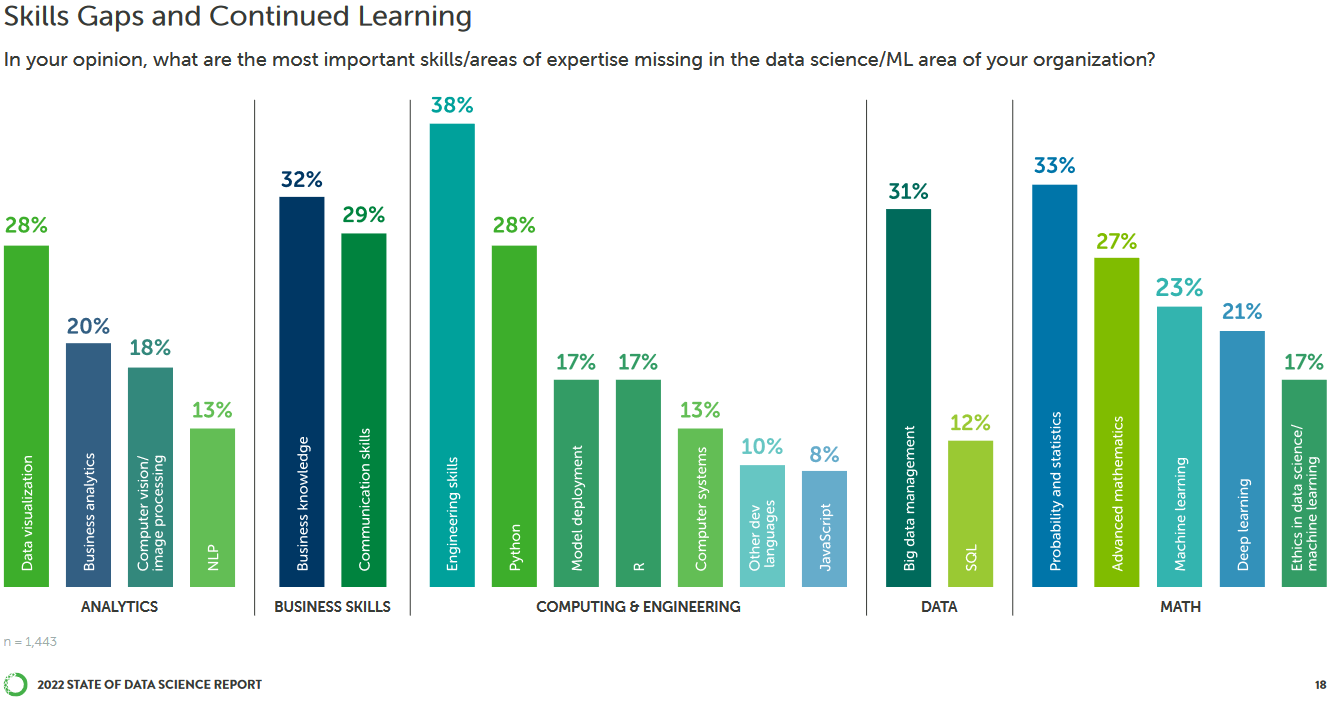A very accurate and vivid description of being a data scientist in a consulting context.
I can definitely say that I have experienced this myself, and it does take a while to get used to presenting comfortably (therefore confidently).
But like it or not, the holy grail in data science has always been about connecting and bridging the gap between business and technical.
An excerpt from the article (https://vicki.substack.com/p/selling-data-science) below:
——————————————————————————
Me? Present? To executives? The people that wear ties and Bluetooth earpieces and say things like, “Sharon, hold my 2 o’clock, I have a meeting at 1:30 and I’m coming in hot,” unironically? He might as well have asked me to present to the UN Security Council.
“I’ll help you tweak it a bit,” my manager said, encouragingly. “Ok,” I said. “First, take out all the slides where you talk about how you did the analysis. Put those in the back. Move the charts forward. Delete these numbers. Make the headlines bigger.”
Tag: Skill Gaps
-
Being a data scientist in consulting
-

State of DS Survey by Anaconda – Skill Gaps
According to the State of Data Science survey done by Anaconda, the top 5 most important skill gaps in data science are:
⭐️ Engineering skills
⭐️ Probability and statistics
⭐️ Business knowledge
⭐️ Big data management
⭐️ Communication skills
These skill gaps cut across multiple knowledge domains, from technical skills to soft skills, reflecting the needs for data scientists or a data science team to possess these skills to ensure project success.
Also note that these are mostly fundamental skills, rather than specialised skills such as NLP. Perhaps reflecting the nascency of data science in most organisations.